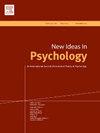A cultural identity approach to the generational divide
IF 2.9
3区 心理学
Q2 PSYCHOLOGY, EXPERIMENTAL
引用次数: 0
Abstract
Some scholars have argued strongly against the idea that differences between generations are responsible for intergenerational conflict, calling for organisations and policymakers to do away with the notion of generations altogether. The current review argues that generations are an important social identity and makes the case for why generational identity should inform policy, despite inconsistent empirical evidence for generational differences. Drawing on cultural psychology and social identity theory, we find parallels between how racial and ethnic identities shape how people interpret and respond to racial diversity and so-called racial and ethnic “differences”, and how generational identity influences people's attitudes and behaviours in age-diverse environments. Comparing three intergroup ideologies relevant to cultural diversity, colourblindness, multiculturalism and polyculturalism, we contend that polyculturalism will best serve age-diverse workplaces by promoting positive intergenerational exchange through deeper appreciation for the dynamic nature of “generational culture” and the interconnectedness of generational groups.
代际差异的文化认同方法
一些学者强烈反对代际冲突是代际差异造成的观点,呼吁组织和政策制定者彻底废除代际概念。当前的评论认为,代际是一个重要的社会身份,并说明了为什么代际身份应该为政策提供信息,尽管代际差异的经验证据不一致。利用文化心理学和社会认同理论,我们发现种族和民族认同如何塑造人们如何解释和应对种族多样性和所谓的种族和民族“差异”,以及代际认同如何影响人们在不同年龄环境中的态度和行为之间的相似之处。通过比较与文化多样性相关的三种群体间意识形态——色盲、多元文化主义和多元文化主义,我们认为多元文化主义将通过对“代际文化”的动态本质和代际群体的相互联系的更深层次的理解,促进积极的代际交流,从而最好地服务于年龄多样化的工作场所。
本文章由计算机程序翻译,如有差异,请以英文原文为准。
求助全文
约1分钟内获得全文
求助全文
来源期刊

New Ideas in Psychology
Multiple-
CiteScore
4.80
自引率
3.80%
发文量
37
期刊介绍:
New Ideas in Psychology is a journal for theoretical psychology in its broadest sense. We are looking for new and seminal ideas, from within Psychology and from other fields that have something to bring to Psychology. We welcome presentations and criticisms of theory, of background metaphysics, and of fundamental issues of method, both empirical and conceptual. We put special emphasis on the need for informed discussion of psychological theories to be interdisciplinary. Empirical papers are accepted at New Ideas in Psychology, but only as long as they focus on conceptual issues and are theoretically creative. We are also open to comments or debate, interviews, and book reviews.
 求助内容:
求助内容: 应助结果提醒方式:
应助结果提醒方式:


